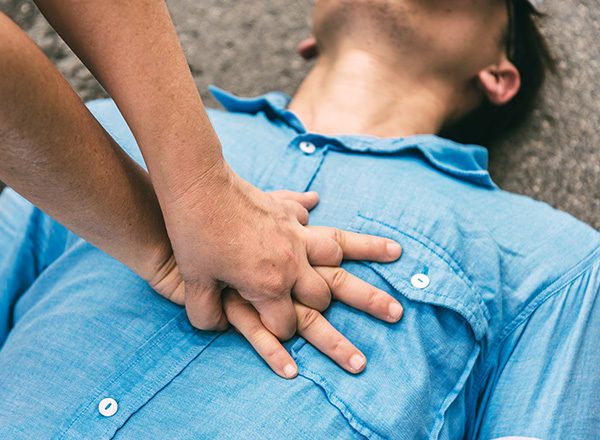October is Sudden Cardiac Arrest Awareness Month, which makes it a great time to emphasize a key fact: High-quality CPR is the greatest determinant of survival during sudden cardiac arrest. By 2025, RQI aims to save an additional 150,000 lives annually from sudden cardiac arrest through verified resuscitation competence.
No matter who or where you are — a physician or nurse on a critical care unit, a first responder, a workplace employee, or an unsuspecting bystander — you can help save a life during a cardiac emergency. Effective and high-quality CPR skills hinge on maintaining consistent motor skills and reinforcement to minimize CPR skills decay.
This October presents an opportunity to discover how you can contribute to saving lives with low-dose, high-frequency CPR training. Here are the key details to know.
What Is Sudden Cardiac Arrest Awareness Month?
In 2008, Congress declared Sudden Cardiac Arrest Awareness Month as a resolution, and in 2016, the federal government recognized the month as an official observance. This month is vital to initiate discussions about this severe and life-threatening condition.
Essential goals for Sudden Cardiac Arrest Awareness Month include:
- Raise awareness of the importance of recognizing the risks and consequences of sudden cardiac arrest.
- Educate providers and the public on high-quality CPR and how to use an automated external defibrillator (AED).
- Save lives through increased education and preparedness that can lead to faster responses, better outcomes and higher survival rates.
- Celebrate survival stories of the lives saved by prompt intervention, showcasing the impact of preparedness and quick action.
By understanding the risk factors, recognizing the signs and learning high-quality CPR techniques, anyone can play a vital role in saving lives and ensuring a safer and more heart-healthy future for communities.
How You Can Help Save Lives from Sudden Cardiac Arrest
The two most effective ways to help save the life of someone experiencing sudden cardiac arrest are:
- High-quality CPR
- Defibrillation using an AED
High-quality CPR ensures a sufficient supply of oxygen reaches the person's lungs and transports it to their brain, sustaining vital functions until an electric shock from an AED restores a regular heart rhythm.
If you're out of the hospital and see someone drop to the ground, call 911 immediately. Swiftly implementing emergency interventions, such as CPR and defibrillation, increases the likelihood of survival and optimal outcomes.
In addition to RQI programs, the AHA offers CPR training courses for healthcare professionals and the general public. Educational programs include:
- CPR and AED Training
- Heartsaver Courses
- Hands-Only CPR Resources
- Family and Friends CPR
- CPR Anytime Training Kits
- Cardiac Emergency Response Plan
Explore some of our Sudden Cardiac Arrest Month resources to help increase awareness of how to better prepare to save a life during a sudden cardiac arrest event.






